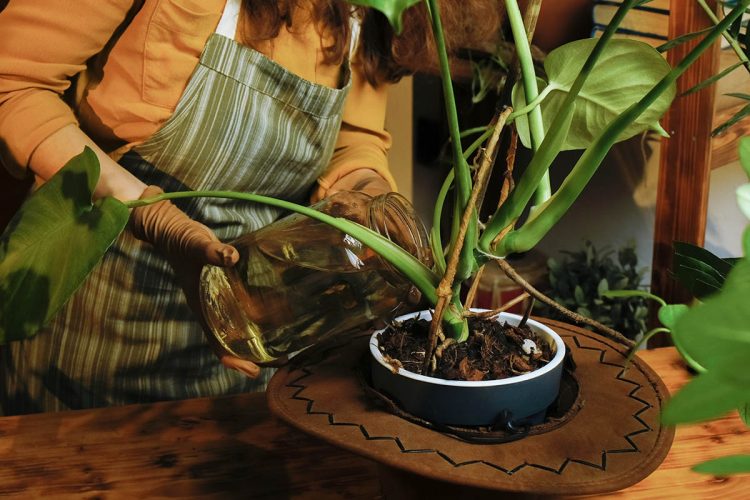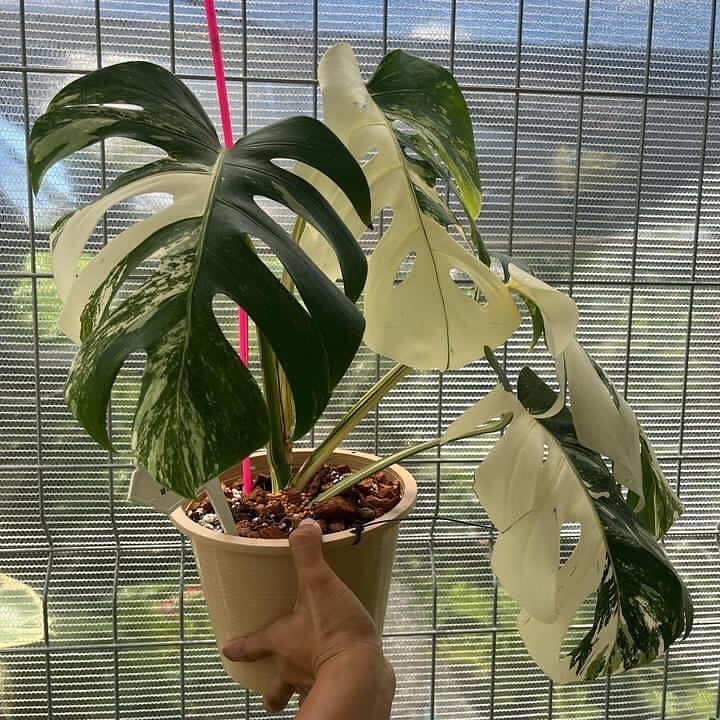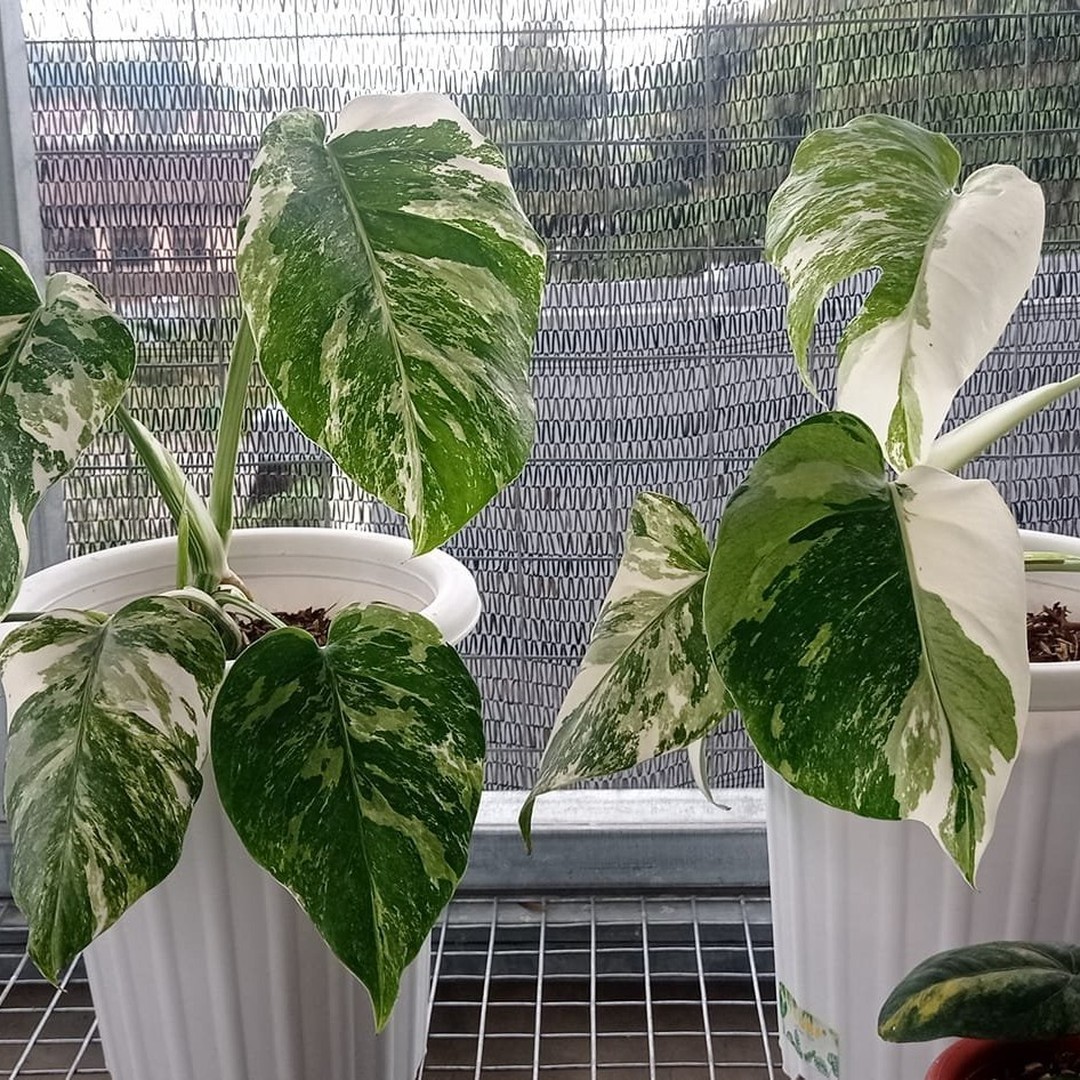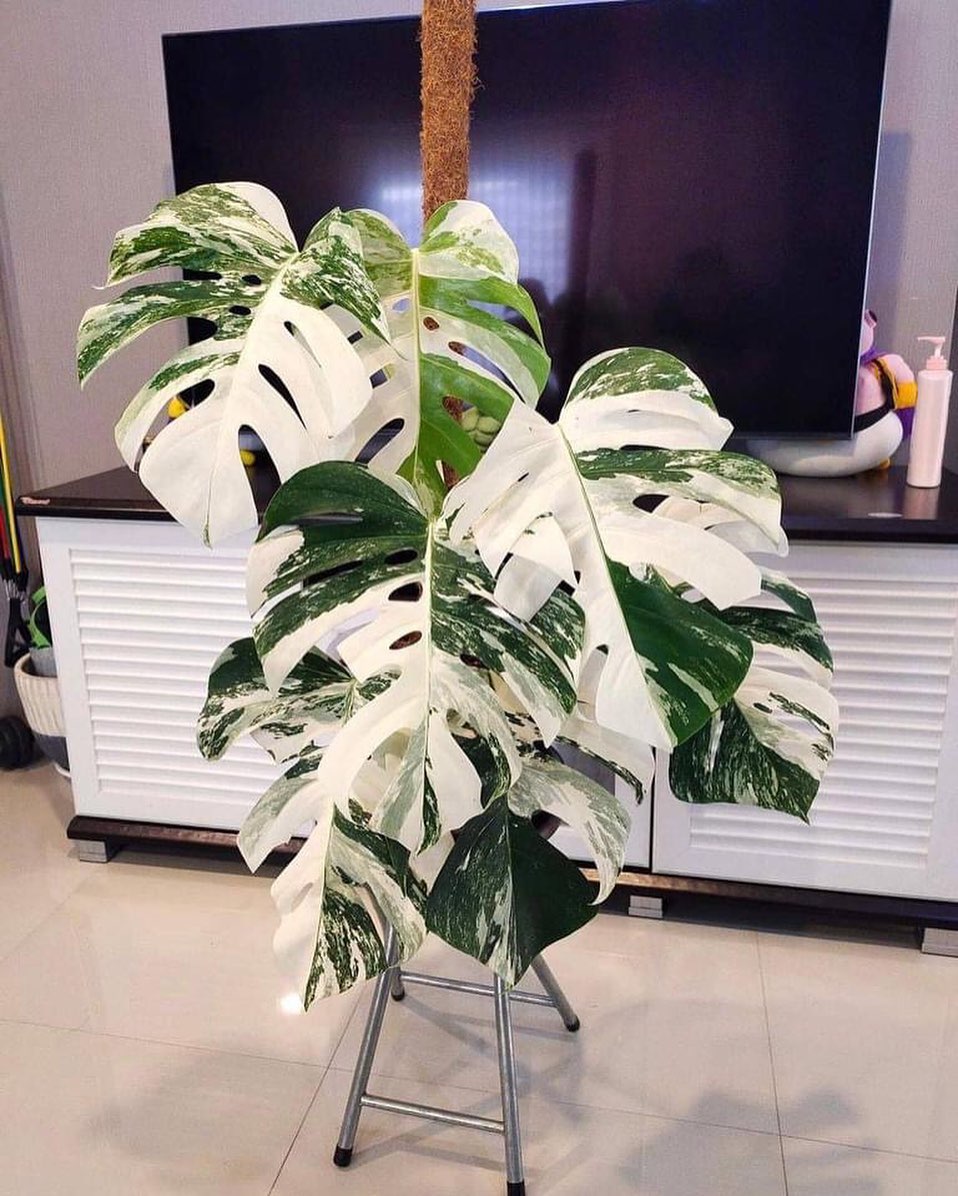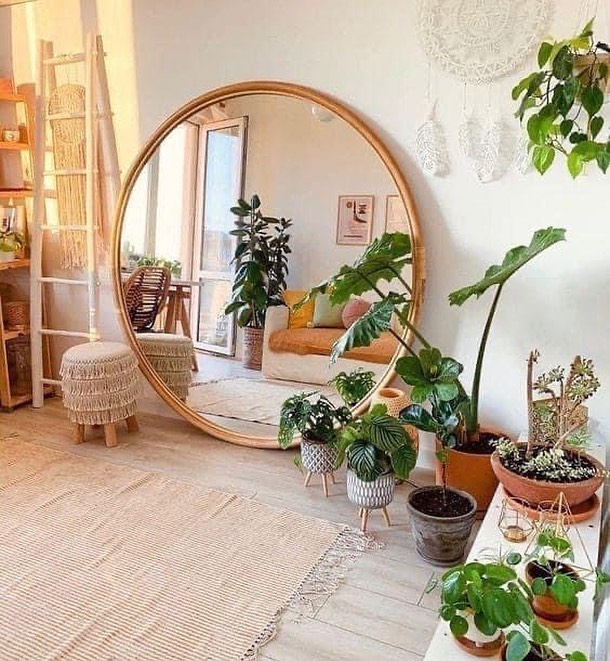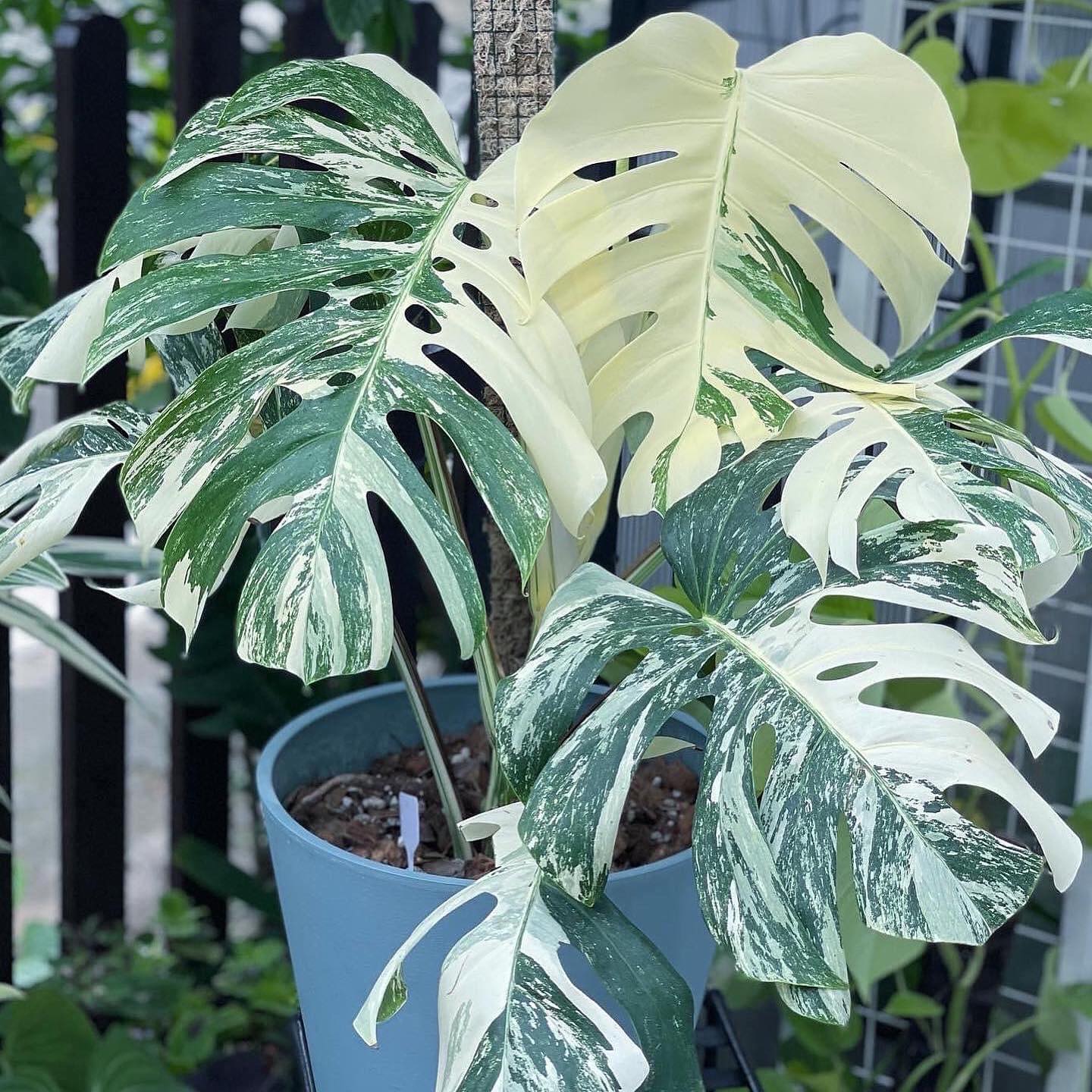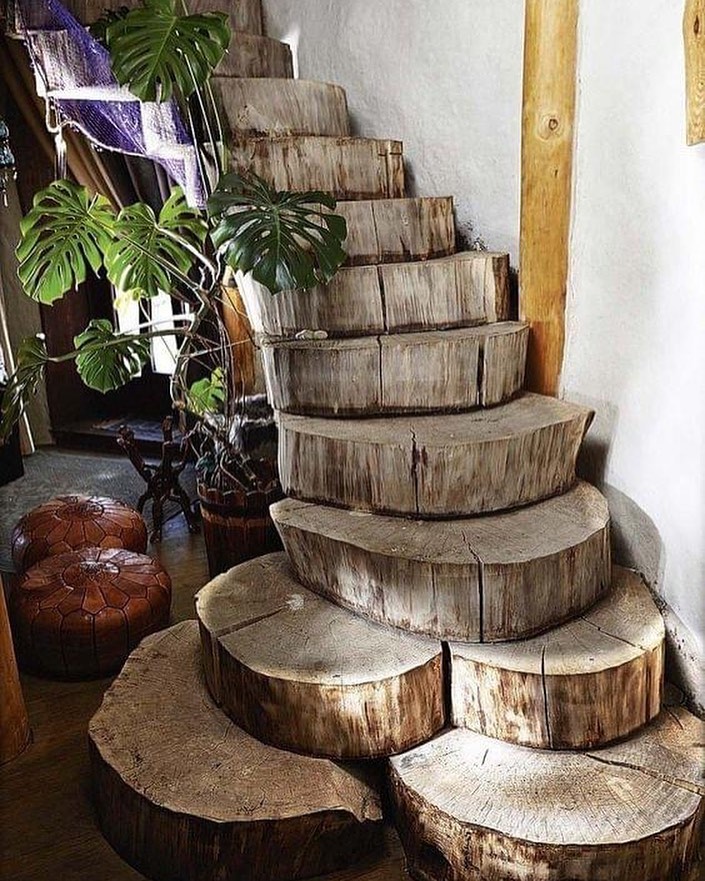As a new parent, plants is tricky & you must pay close attention. Because Wrong Fertilizing practices may harm your .
None of this stuff is rocket science. But it is helpful information to keep in mind when caring for our plants.
I am going to be sharing when, how, and why to fertilize your .
In the end, you will have all the knowledge easy tips, and tricks that you’ll need to set you up for success.
We are going to deep dive with the which is my favorite .
Contents
- 1 Why is Fertilizing Monstera plant so important?
- 2 Possible signs of a lack of nutrients in the soil of your Swiss Cheese Plant.
- 3 What is the best fertilizer for Monstera?
- 4 Is Synthetic or organic fertilizer best for your plant?
- 5 When to fertilize monstera?
- 6 Possible signs of too much fertilizer to Monstera Plant
- 7 How do We fertilize Monstera plants?
- 8 How often should we fertilize Monstera?
- 9 How much do I fertilize my plant?
- 10 Fertilizing Monstera | The Essential Guide | Summary
Why is so important?
We should look at as vitamins for our plants to boost healthy growth. And it is very important that we fertilize our plants because they are in a pot. The fertilizers replace the nutrients in the that we lose over time.
The General Rule of thumb is to feed your plan in the growing seasons. It is very important that we provide these nutrients so our plants can grow healthy.
Bear in your mind that has a direct relationship with the nutrients we feed to the .
if you recently purchased a from a nursery or repotted it, you do not need to immediately fertilize it. This is because most potting soils will have at least some and nutrients in the mix.
But usually, after a couple of months, the nutrition in that will run out. At that point, it is a really good idea to consider .

Possible signs of a lack of nutrients in the of your .
The following signs may mean that your is lacking nutrients.
- Slow growth
- Little resistance to pests
- Pale leaves or washed-out appearance – so the color may not be so bright
- yellow spotting on the leaves. Eventually, it causes .
- No flowers in plants that should be flowering at that moment
- Very small discolored flowers.
It’s always important to know the specific requirements for your . Because these signs may mean something else, either under- or over-.
So always educate yourself before you decide to fertilize your . And talking about fertilizing our plants,
What is the best for ?
When it comes to Choosing a Perfect for your , It completely depends on the Health & growth stage of the .
is not . Plants actually make their own food using light in a process called photosynthesis.
When the sunlight hits the surface of a then specific cells convert this light into sugars that then the can use them.
So, is not the , but you can see it as vitamins for the .
These vitamins will boost the ‘s health and they will help it thrive as it grows.
Thus, we need to be careful when choosing the right for our plants.
You may be struggling to pick the right one as you always felt like You didn’t know enough to make the right decision. So you seem nervous to make any decision.
So, I am going to explain it.
What is NPK Ratio?
The main thing I recommend keeping in mind, is there are three main numbers that you see on most fertilizers. These three numbers are called the NPK ratio.
These three numbers are the percentages mixture of each macronutrient in the .
NPK ratio indicates,
- N- Nitrogen
- P – Phosphorus
- K- Potassium
The requirement of the ratio of these three nutrients will vary depending on the type of that you are going to fertilize.
Thus it is important to choose a that has the correct NPK ratio for .
What do each of the three main macronutrients in the MPK ratio do?
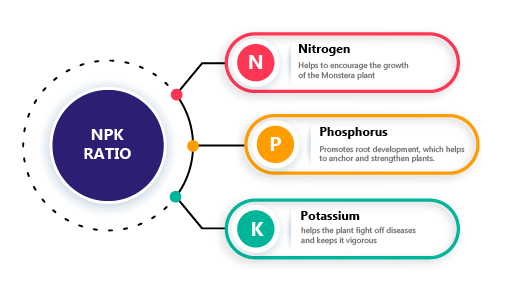
01- Nitrogen
Nitrogen is great for development which we definitely need for our beautiful green plants.
Higher Nitrogen helps to encourage the growth of the . It also helps plants become greener. Because it’s actually an essential part of developing chlorophyll.
if a is deficient in nitrogen you might see the yellowing of the leaves start to happen.
02- Phosphorus
Phosphorus is great to encourage flowering, as well as good and healthy root growth.
If you see that your is about to flower, a that is rich in phosphorus will help the bloom & thrive.
03- Potassium
Potassium helps with flowering & disease prevention. Potassium will boost the immune system of your swiss cheese
It is also great for plants that are more prone to pest attacks.
I use fertilizers that are rich in potassium, which can protect the against pests & insects such as .
Read this article for treatments for pests & .
What is the best NPK ratio for plants?
When it comes to deciding which is best for your , the NPK ratio is one factor to consider. Thus, I always try to stick with a balanced NPK ratio like 6-12-6.
My advice is to look at your and see what it needs and then you can decide which is best depending on the ratios of the elements.
Is Synthetic or best for your ?
It is important to note that plants cannot tell a difference between synthetic fertilizers and organic fertilizers.
Organic fertilizers are less fast-acting than synthetic fertilizers.
Therefore, it takes a little bit longer to release its chemical army. But they do tend to feed your for a longer period of time.
The biggest advantage is that Organic fertilizers are far less likely to burn your in the event of over-fertilizing.
Another advantage of organic fertilizers is that they tend to come with more micronutrients or other bacteria. These elements are also beneficial for our Swiss cheese plants.
Synthetic fertilizers are made in a lab. So they tend to really concentrate on the element. And they come at a higher MPK rate; so the numbers in synthetic fertilizers will be higher. It comes with 30-30-30, 30-20-40 or something like this. Whereas In organic fertilizers you will tend to see 2-3-2 or the highest 10-10-10 or 9-10-8.
Most of the time, Synthetic fertilizers are produced as .
As a beginner, this lower ratio in organic fertilizers helped me to prevent over-fertilization.
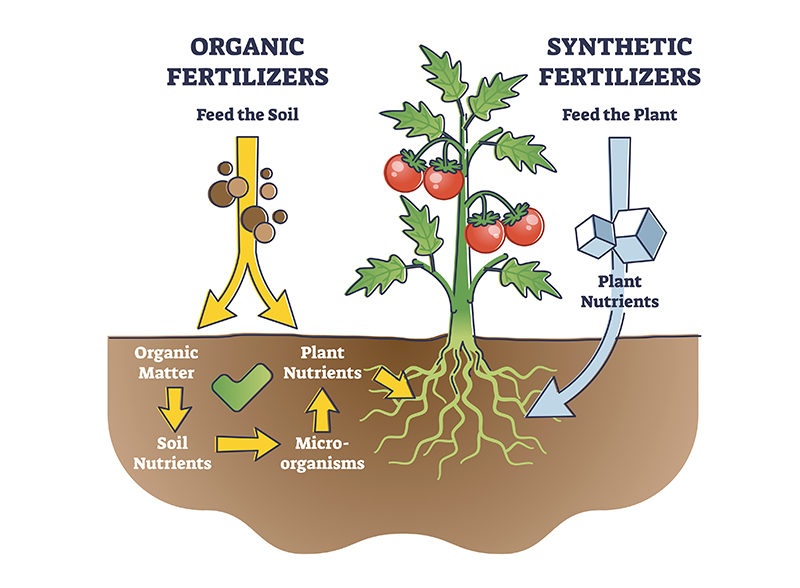
I can tell you from my experience as a beginner, that I love organic fertilizers. This is because it tends to be less concentrated than synthetic fertilizers
But some people like to invest in synthetic fertilizers. Because when you have these percentages in the bottle, the rest is going to be a filler: either or something that will not affect your .
So when you buy synthetic fertilizers you’ll be investing in the elements and not so much in or fillers.
If you are a newer parent, I would suggest choosing an . Because that limits your chance of over-fertilizing your and potentially harming it.
When to ?
A general rule of thumb is that We should fertilize our plants when they are actively growing. We call this the . But, you may have to start outside of the if you notice signs that the is missing nutrients.
As a , the will depend on where you’re located on this planet.
If you live in the northern hemisphere of the planet, the will generally be between spring and fall.
But if you live in a tropical area of the planet, you may see that your plants grow the whole year. So that will mean that you will fertilize your for the whole year.
So what I would recommend is that you always educate yourself on the of your .
This is a common fact for all variations of such as , , & .
In wintertime, do not fertilize at all. Give those plants a chance to rest. But, Depending on where you live and the conditions in your home, you may continue to see growth in your depending on the conditions in the winter months.
If you are seeing new growth during the winter months, you can continue fertilizing Monstera plants.
Possible signs of too much to
- Wilted leaves ·
- The white crust on the surface of the
- Crisp brown edges on the leaves.
Always learn about your and the specific requirements for her. just to make sure because some of these signs may mean something else with your specific .
This way you make sure that you understand your a little bit better and she’s happy.
How do We plants?
This of course will depend on the type of that you use.
For example, for me, I love fertilizing my plants with . What I do is, I use half of a spoon of with 1 liter of .
If you decide to use the time-release pallets (It is also called ), all you have to do is to stick them in the .
Now, always make sure to read the instructions in the package. Because they will tell you how many pallets you need to stick in the depending on the diameter of your pot.
Always observe your and see how they’re doing with the , so you make sure that they’re happy and healthy.
6 Things to know just before .
- When you your , flush out the a little bit. So the can have mineral buildup, minerals, and salt by flushing it out.
- Try to a little bit with the hose and then add the with the . Because it’s important that the is moist enough in order for the to disseminate through the plants while .
- I also recommend flushing out the probably once every six months, like at the beginning of the and then at the end of the .
- It is good practice to measure relative before .
- I also recommend, only fertilizing monstera plants once the roots are hydrated. So they’re ready to receive some of those nutrients.
- After fertilizing monstera, keep the away from . Instead, keep it with .
How often should we ?
I personally fertilize my every two weeks every or three weeks & typically during the growing season. This strongly depends on the Monster that you have & the type of that you use.
Some fertilizers may be more concentrated than others and some plants may need more than others. So one more time, educating yourself on your is very important.
How much do I fertilize my ?
I always recommend starting with a conservative amount. It may be half the amount of the recommended dosage for your plants in the beginning. Then see how they do, and then up it and ramp it up if you need to.
The amount of entirely depends upon the type of that you buy from the store and just reading the instructions on the back.
| The Essential Guide | Summary
This article will be helpful in kind of breaking down the mystery of fertilizing Monstera. Some of the things to keep in mind that will set you up for success when it comes to .
If you have any questions please leave them in the comments below.

